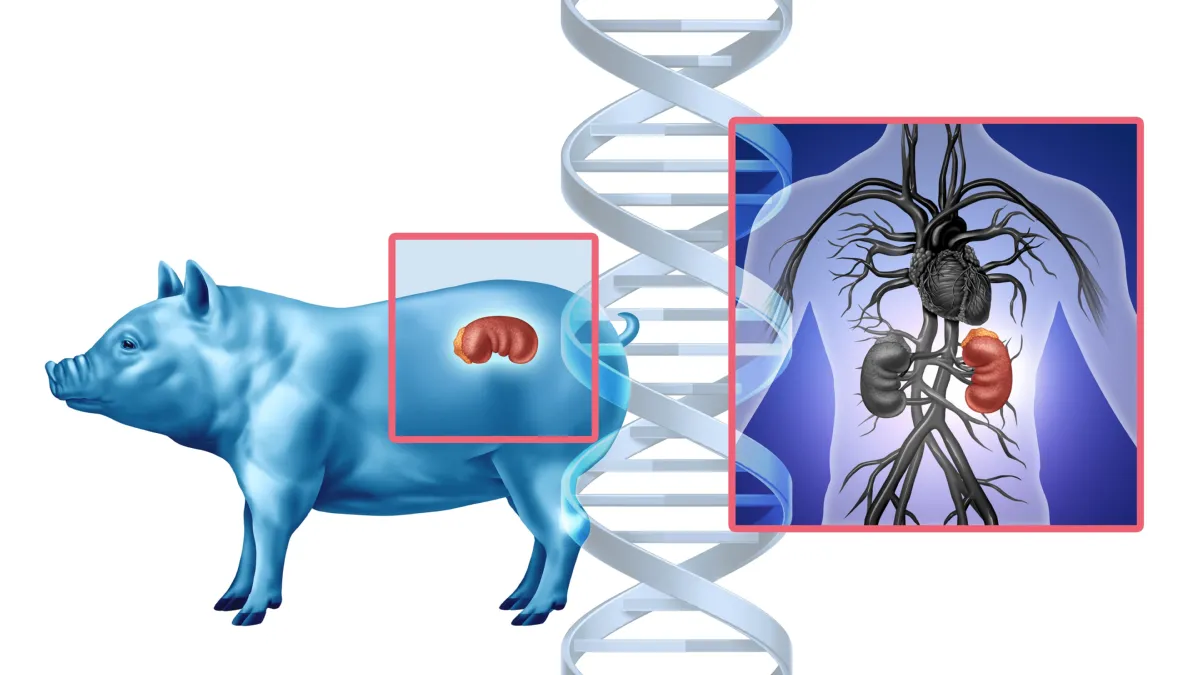Your body speaks—constantly, clearly, and sometimes urgently. But unlike verbal conversations, its language isn’t made of words. It speaks in aches, tingles, fatigue, rashes, and the sudden jolt of a skipped heartbeat. These signals, commonly known as symptoms, are often dismissed or muted by busy lives, over-the-counter fixes, or the simple desire to not deal with what they might mean. But symptoms are messengers, not enemies. They’re your body’s way of saying, “Something’s up—pay attention.”
Much like an alarm doesn’t cause a fire but warns of one, symptoms don’t always point directly to the underlying problem, but they urge you to look deeper. Whether it’s a recurring headache, a persistent cough, or unexpected weight changes, your body is rarely silent without reason. And if you learn to listen—truly listen—you’ll start to understand its hidden language.
When Fatigue Is More Than Just Being Tired
We all feel tired from time to time. A sleepless night, a stressful week, or a heavy meal can leave you yawning by noon. But there’s a special kind of tiredness that no amount of coffee or rest seems to fix—one that seeps into your bones, clouds your thoughts, and dulls your spirit. Chronic fatigue is a symptom that deserves more than a shrug.
This kind of fatigue can be your body’s red flag for a range of issues. It could point to nutritional deficiencies like iron, B12, or vitamin D, quietly depleting your energy without a dramatic show. It might be signaling a thyroid that’s either under- or over-performing its duties. Sometimes, fatigue is the soft whisper of depression or anxiety, manifesting not through emotional breakdowns but through a constant physical heaviness.
In more complex scenarios, prolonged fatigue can hint at autoimmune diseases such as lupus or chronic fatigue syndrome—conditions where your body mistakenly wages war on itself, draining your reserves in the process. The takeaway? If your tiredness feels out of proportion to your activity level, your body is trying to tell you something isn’t right.
Pain: The Body’s Siren
Pain is perhaps the most obvious and difficult-to-ignore symptom, but it’s also one of the most misunderstood. We often rush to mute it with medications, not realizing that pain is less an enemy and more a signal flare. The challenge lies in interpretation. Is this pain acute and sharp—like a muscle tear—or is it dull and persistent, like arthritis or a lingering inflammation?
Take headaches, for instance. A sudden, severe headache unlike anything you’ve felt before could be a medical emergency, potentially indicating a hemorrhage or aneurysm. On the other hand, a headache that creeps in with your third Zoom call of the day might simply be tension or eye strain. Chronic migraines may have hormonal triggers or dietary culprits. Each type of pain tells a different story, and learning to differentiate them is key to decoding your body’s message.
Abdominal pain can be even trickier. It might be gas from something you ate—or it could be a sign of gallstones, appendicitis, or a brewing gastrointestinal disorder. If pain is persistent, escalating, or unusual in any way, it’s your body pleading for closer attention, not for another round of suppression.
Skin Deep: What Your Skin Is Saying
The skin is more than a surface—it’s a canvas of clues. Changes in color, texture, and sensitivity can indicate what’s happening inside. Pale or sallow skin might suggest anemia or liver issues. Sudden rashes, especially when accompanied by fever, could signal infections or allergic reactions. Persistent dryness or cracking may reflect dehydration or thyroid dysfunction.
Acne, though often dismissed as a teenage plight, can be a hormonal red flag, particularly in adult women. Polycystic ovary syndrome (PCOS), for instance, frequently manifests through cystic acne along the jawline. Darkened patches of skin, especially around the neck and underarms, can hint at insulin resistance—a prelude to diabetes.
Meanwhile, itchy skin without a rash could be your liver waving a red flag, especially if it’s paired with other subtle signs like dark urine or pale stools. And let’s not forget bruises that appear without a clear cause; they might suggest platelet issues, blood disorders, or side effects from medications.
Your skin reflects more than your skincare routine—it echoes your hormones, your immunity, and your overall systemic health.
The Gut Reaction: Digestive Clues and Clamor
Your digestive system has a voice all its own. Bloating, constipation, diarrhea, heartburn—these aren’t just annoyances to be tamed with antacids and laxatives. They’re the body’s way of reporting how well (or poorly) it’s processing what you eat, how your microbiome is functioning, and whether inflammation is brewing inside your intestines.
Irritable bowel syndrome (IBS), celiac disease, inflammatory bowel diseases like Crohn’s or ulcerative colitis—all of these conditions start with subtle whispers. Maybe you notice discomfort after meals, or your stool becomes irregular in frequency or form. Maybe you’re suddenly lactose intolerant, or you get gassy from foods that never bothered you before. These aren’t random quirks; they’re signs of an ecosystem in flux.
Even your poop—yes, it’s worth discussing—can tell tales. Persistent pale stools could signal a bile duct blockage. Black, tarry stools may suggest gastrointestinal bleeding. Floating stools might indicate fat malabsorption. It’s not glamorous, but understanding your gut’s complaints can lead to transformative health shifts.
The Weight of the Matter
Weight changes—either gain or loss—are among the most visible symptoms, but they can also be among the most misleading. A few pounds up or down can be explained away by changes in diet, exercise, or stress. But unexplained weight shifts deserve a deeper dive.
Sudden weight gain, especially around the midsection, could be connected to hormonal imbalances such as cortisol spikes from chronic stress, or issues with insulin sensitivity. Conditions like hypothyroidism slow down your metabolism, making weight management feel like an uphill battle.
On the flip side, unexpected weight loss could point to hyperthyroidism, digestive malabsorption, or even more serious conditions like cancer or chronic infections. In diabetes, weight loss can occur as your body, unable to process glucose, begins breaking down muscle and fat for energy.
Your weight is not just a number—it’s a metric of metabolic harmony. When it fluctuates wildly without reason, it’s worth asking why.
Breathless Signals: Lungs and Heart in Conversation
Breathlessness is often brushed off as a fitness issue. But when climbing stairs feels like scaling Everest—or when shortness of breath sneaks in even while you’re sitting still—it’s a sign worth exploring.
Cardiovascular issues, such as congestive heart failure or arrhythmias, can manifest through breathlessness. So can pulmonary conditions like asthma, COPD, or even a blood clot in the lungs. When paired with symptoms like chest discomfort, dizziness, or palpitations, breathlessness becomes a critical signal.
Your lungs and heart are in constant coordination, delivering oxygen to every cell in your body. When this dance is disrupted, your breathing patterns change. If you’re listening, they’re trying to tell you something vital.
Mood, Mind, and Mental Health: The Silent Cry
Mental health symptoms are among the most difficult to acknowledge, especially because they’re often invisible. Anxiety might show up as a racing heart, digestive troubles, or restless sleep. Depression might not look like sadness at all—it could be irritability, a loss of interest, fatigue, or unexplained aches and pains.
Brain fog, forgetfulness, and trouble concentrating might stem from hormonal imbalances, nutritional deficiencies, chronic stress, or even autoimmune diseases like lupus or MS. Persistent insomnia or hypersomnia might not just be poor sleep hygiene—it could be your brain’s cry for help.
We often separate the brain from the body, as though mental and physical health exist on separate planes. But the truth is, they are inextricably linked. The gut-brain axis, for instance, shows how digestive issues can influence mood and cognition. A sluggish thyroid can mimic depression. Chronic inflammation can alter neurotransmitter levels.
Your thoughts, emotions, and behaviors are physiological processes. When something shifts, your brain is telling you what it needs—perhaps rest, nutrients, therapy, or medical intervention.
Menstrual Messaging: What Your Cycle Reveals
For those who menstruate, the monthly cycle is a vital barometer of health. Irregular cycles, painful periods, heavy bleeding, or sudden changes in flow can all indicate underlying imbalances.
A cycle that’s suddenly too short or too long might be influenced by stress, thyroid dysfunction, or perimenopause. Very heavy periods could suggest fibroids, endometriosis, or clotting disorders. Absent periods—especially when not pregnant—might point to PCOS, hypothalamic amenorrhea, or even pituitary gland issues.
Even PMS symptoms—often brushed off as “normal”—can reveal deeper truths. Severe mood swings, breast tenderness, or migraines linked to your cycle might indicate estrogen dominance or progesterone deficiency. When your period shifts, your hormones are speaking. It’s not just reproductive chatter—it’s systemic.
The Sound of Silence: When Subtlety Speaks Loudest
Not all symptoms arrive like thunder. Some slip in quietly—a creeping fatigue, a mild but chronic cough, a subtle change in appetite. These silent symptoms are the ones we’re most likely to ignore, especially when life is busy or stressful.
But silence doesn’t mean nothing is wrong. High blood pressure often has no obvious symptoms until a crisis hits. Type 2 diabetes can develop slowly, with only vague signs like thirst or frequent urination. Ovarian cancer is notoriously silent in its early stages. The art of symptom awareness is not just in recognizing pain or discomfort, but in noticing what’s changed—no matter how small.
Trust your instinct. You know your body better than anyone. When something feels off—even if you can’t put your finger on it—it probably is.
Modern Medicine Meets Body Wisdom
In a world of lab results, imaging scans, and algorithms, it’s easy to forget that our bodies have been sending us clues long before we had blood panels or MRIs. Modern medicine excels at diagnostics, but it works best when combined with personal awareness. You don’t need to be a hypochondriac to be curious about your symptoms. You just need to be an active participant in your own health story.
Symptom tracking—whether through journaling, apps, or simple mindfulness—can transform vague complaints into patterns, and patterns into insights. What triggers your headaches? When does your energy slump? How does your sleep change across your cycle? These are not just idle musings; they’re valuable data points.
The goal is not paranoia but partnership. When you listen to your symptoms, you’re not surrendering to fear—you’re honoring the intelligence of your own biology.
Conclusion: Your Body Is Not Betraying You
Symptoms often feel like betrayal. Why now? Why this? Why me? But more often than not, they are the exact opposite of betrayal—they are your body’s way of fighting for balance, of trying to protect you, of signaling that something needs attention before it becomes something worse.
Pain is a protest. Fatigue is a plea. Changes in skin, digestion, weight, and mood are all messages. Some are urgent. Some are whispers. All are worth listening to.
You don’t need a medical degree to understand the basics of your body’s language. You just need curiosity, patience, and a willingness to pay attention. When you do, you transform symptoms from something to dread into something to decode—and with that, you become the expert of your own experience.
Because ultimately, the most important thing your symptoms are trying to tell you is this: You matter. Your health matters. And it’s time to listen.






